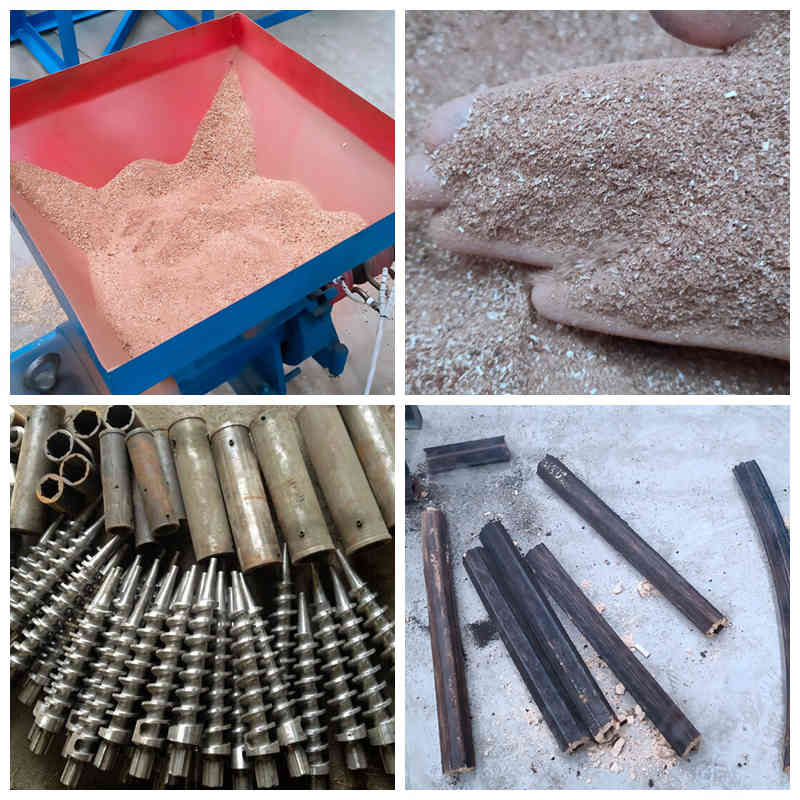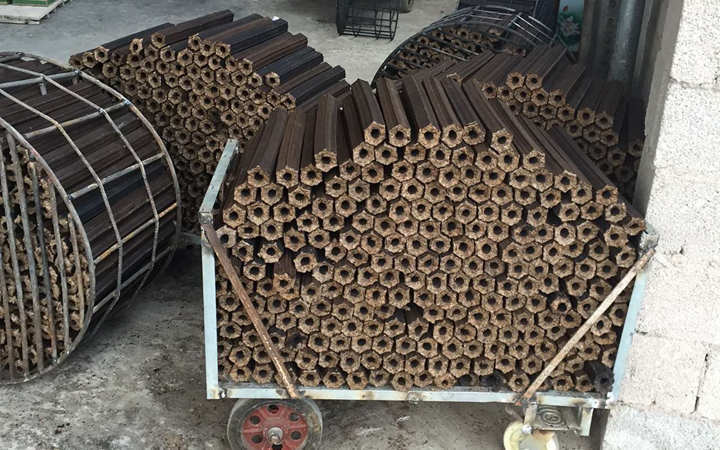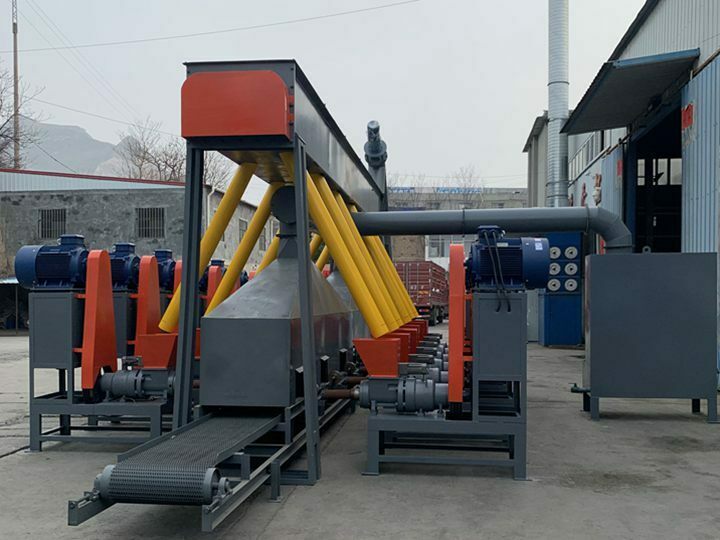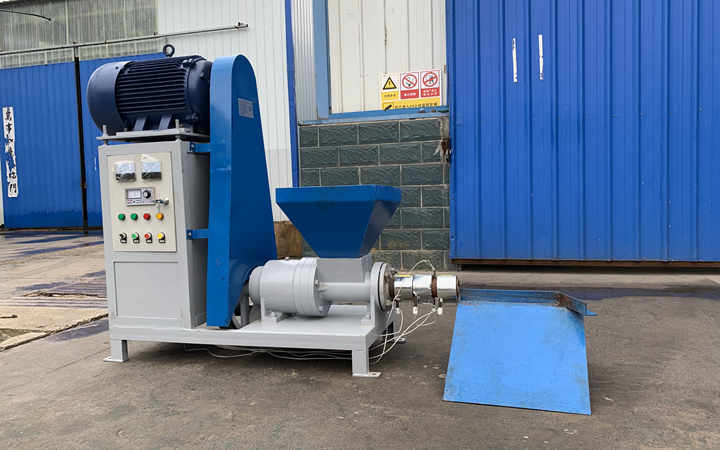El carbón vegetal producido por máquinas es una materia prima y aditivo indispensable en industrias como la mejora del suelo en la agricultura, la prevención de enfermedades en la ganadería, y "calefacción en invierno" y otras industrias. También es un combustible indispensable para industrias como la agricultura y la metalurgia. Por lo tanto, mientras se prohíbe la tala y la quema de carbón, muchos países fomentan el desarrollo de una nueva generación de carbón vegetal producido por máquinas para reemplazar el carbón natural.
Las perspectivas de desarrollo del carbón de briquetas

Muchos países del sudeste asiático son grandes productores de carbón vegetal, con una producción anual de carbón vegetal que supera los 10 millones de toneladas. En el contexto de la reducción gradual de la producción tradicional de carbón vegetal, el carbón vegetal producido por máquinas utiliza desechos agrícolas y forestales como cáscaras de arroz y aserrín como materias primas. En comparación con el carbón vegetal de bosques naturales, el carbón vegetal producido por máquinas tiene grandes ventajas y sus perspectivas de mercado son cada vez mejores.
El mercado internacional tiene una demanda continua de carbón vegetal producido por máquinas, y la capacidad de producción actual no puede satisfacer la demanda del mercado. El precio del carbón vegetal producido por máquinas sigue aumentando, y a menudo no hay mercado disponible. El proyecto de carbón vegetal del mecanismo de inversión no solo puede obtener buenos beneficios económicos, sino también crear buenos beneficios sociales. Es un buen proyecto que beneficia al país y a la gente.
Necesidad de la construcción del proyecto de máquina de carbón vegetal hecho a máquina

- Utilización de residuos: Cada año, se acumula una gran cantidad de pajas de cultivos y otros residuos, de los cuales solo se utilizan entre el 20% y el 30%, y el resto se desecha como basura. También hay miles de millones de toneladas de ramas, aserrín, cáscaras de arroz y diversas pajas de cultivos. Si se desechan, según la proporción de 2.5-3.1 de carbón producido a partir de residuos de carbón fabricado en máquina, se producirán miles de millones de toneladas de carbón de nueva energía fabricado en máquina.
- Convertir residuos en tesoros: El carbón en briquetas puede reemplazar al carbón natural, lo que ahorra madera, protege eficazmente los recursos forestales, previene la erosión del suelo y ajusta el equilibrio ecológico.
- Regeneración de recursos: El carbón vegetal es una materia prima y aditivo indispensable en la industria, agricultura, ganadería, metalurgia y otros sectores de China. Con el rápido desarrollo económico de varios países en el mundo, el carbón vegetal producido por máquinas puede aliviar de manera efectiva la tensión del suministro de carbón, lo que es favorable para el desarrollo sano y estable de la economía nacional.
¿En qué partes debe dividirse la inversión en la máquina de carbón vegetal hecho a máquina?
La inversión de todo el conjunto de equipos de la máquina de carbón se divide aproximadamente en las siguientes partes: inversión en equipos + inversión en el sitio + inversión en mano de obra + inversión en materias primas + inversión en energía

- Inversión en el sitio: Para garantizar la producción normal de todo el conjunto de máquinas de carbón de mecanismo, necesitamos al menos unos 100 metros cuadrados de espacio. Generalmente, lo poseemos o lo alquilamos nosotros mismos. El costo depende de nuestra situación real.
- Inversión en equipos: La inversión en equipos debe determinarse de acuerdo con la escala de producción. En otras palabras, se determina según la demanda del mercado de carbón de mecanismo y sus propios fondos de inversión. Los fabricantes tienen diferentes especificaciones de equipos, y la producción es de 1 tonelada por día, 2 toneladas y más de 3 toneladas, esto se basa en el carbón terminado.
- Inversión en materias primas: En términos generales, los sitios de carbón vegetal hecho a máquina se encuentran en áreas rurales. Se pueden recolectar pajas locales, ramas y otros materiales crudos de los alrededores, o se pueden comprar a precios bajos. El sitio debe ubicarse en un área con suficientes materias primas, lo que no solo reducirá el costo de las materias primas del carbón vegetal hecho a máquina, sino que también puede reducir los costos de transporte. Según las condiciones locales reales, también hay diferentes brechas en la cantidad de inversión.
- Recursos humanos: Según la experiencia de instalación de nuestra fábrica durante muchos años, se necesitan 2 personas para producir una tonelada de carbón terminado por día, y se necesitan 4 personas para llevar a cabo la operación real para la producción de una tonelada de carbón terminado por día.
- Inversión en electricidad: Con una producción diaria de una tonelada de carbón vegetal hecho a máquina, nuestro equipo de máquina de carbón vegetal consume aproximadamente 260 grados de electricidad. Según la factura de electricidad local, se puede calcular el costo requerido.

